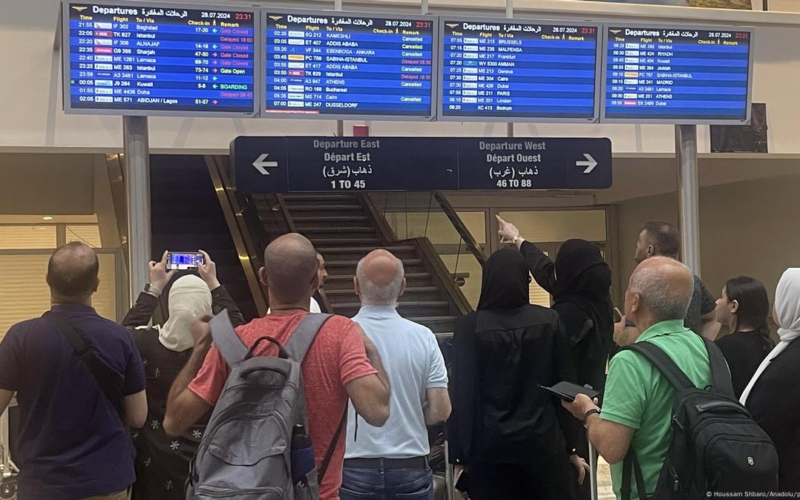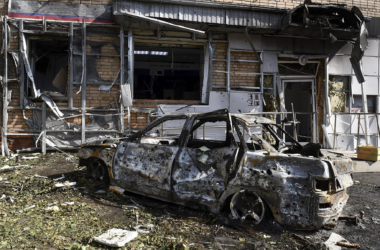As tensions in the Middle East continue to escalate, airlines around the world are taking precautions by altering flight routes and canceling services to Israel and Lebanon. This comes in the wake of increased fears of regional conflict following the recent killings of senior figures from Hamas and Hezbollah, two prominent militant groups in the region.
Singapore Airlines, Taiwan’s EVA Air, and China Airlines are among those who have begun avoiding Iranian airspace, citing safety concerns. The decision to reroute flights away from potentially volatile areas underscores the growing anxiety within the global aviation industry about the possibility of an all-out war.
The situation has been further complicated by reports of a meeting between Iranian officials and their allies from Lebanon, Iraq, and Yemen to discuss potential retaliatory actions against Israel. This has led to warnings from flight safety organizations, advising airlines to avoid not only Iranian but also Iraqi airspace.
The tension has already affected air travel significantly. Many major airlines, including Lufthansa, Air India, United Airlines, and Delta, have suspended flights to Tel Aviv, Israel’s largest city, while flights to Beirut, Lebanon, have also been canceled or delayed. The heightened alert follows a strike in the Israeli-occupied Golan Heights, which Israel has attributed to Hezbollah, though the group has denied any involvement.
The precautionary measures extend beyond just the avoidance of certain airspaces. Canada has issued a notice to its airlines to steer clear of Lebanese airspace for the next month due to the increased risk of military activity. Similarly, the United Kingdom has warned its pilots of the potential dangers of flying over Lebanon, citing risks from anti-aircraft weaponry and military operations.
The potential for a broader conflict in the region raises significant concerns for civil aviation. In addition to the dangers posed by missiles and drones, there is a growing risk of GPS spoofing—a tactic used by military and other actors to disrupt aircraft navigation systems. This has been a particular issue around Lebanon and Israel, where such activities could have catastrophic consequences for commercial flights.
The situation in the Middle East is a stark reminder of the volatile nature of the region and the impact it can have on global security. As airlines and governments alike navigate these tensions, the need for careful, measured responses is more critical than ever. The decisions made in the coming days and weeks will not only affect the safety of air travel but could also influence the broader dynamics of peace and conflict in the Middle East.
For the Palestinian people, these developments are yet another chapter in a long history of suffering and instability. As the world watches and waits, it is crucial to remember the human cost of these geopolitical struggles, particularly for those caught in the crossfire of larger powers.








